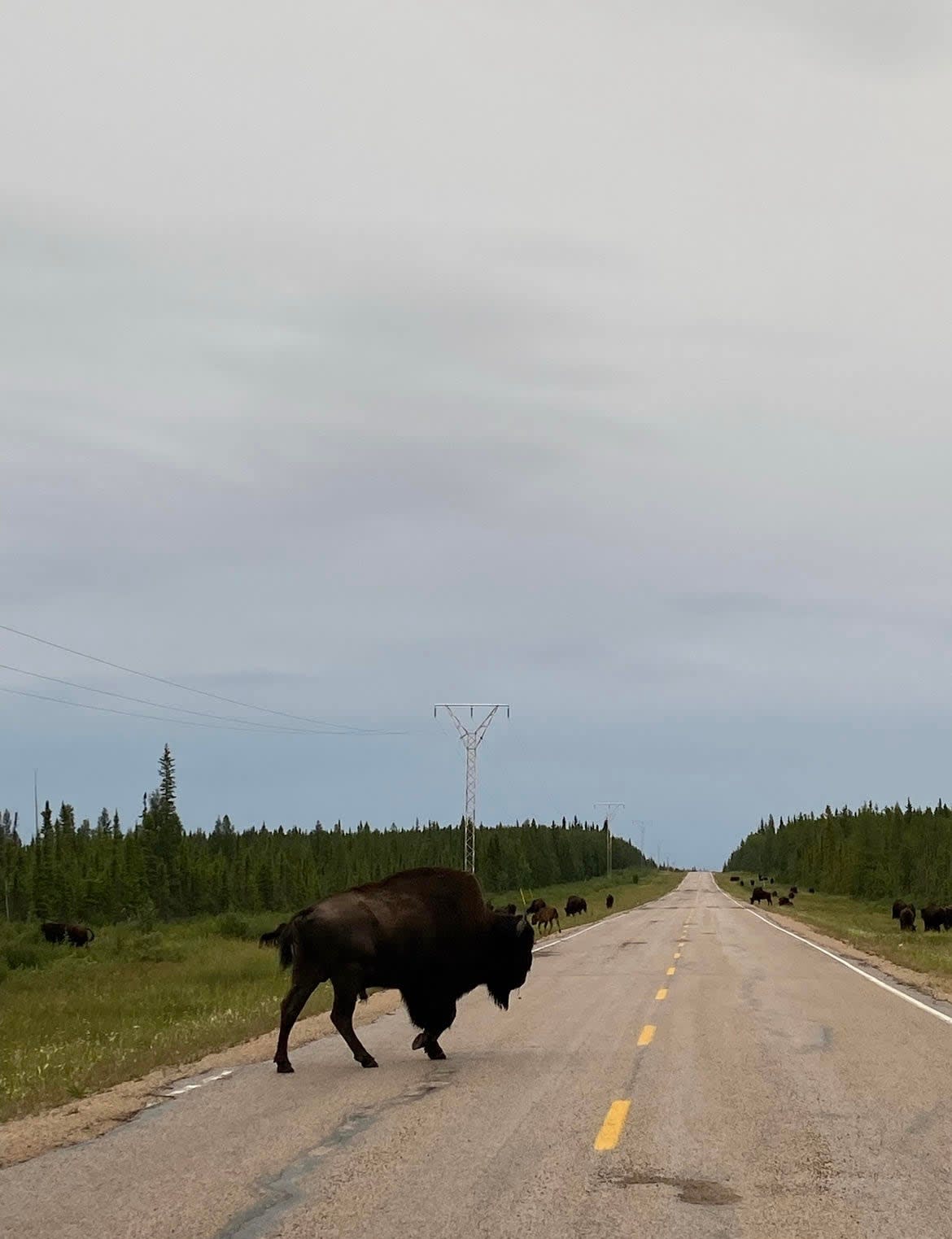Plans for bison processing plant in Fort Simpson, N.W.T., met with skepticism by local hunter

The Fort Simpson Métis in the N.W.T. have secured federal funding for a bison meat processing facility, but at least one local hunter wonders why the facility — pitched as way to increase food security — will process meat from an animal rarely seen in the area.
The Canadian Northern Economic Development Agency (CanNor) announced funding last month for four northern projects that it says will help improve food security in Canada's territories.
The Fort Simpson Métis Development Corporation (FSMDC) was one of about 50 projects to apply for the CanNor funding. It received $212,080 in 2022 to develop the idea and it's now received an additional $705,500 for a project listed as "bison farm to fork."
"Through this initiative, the FSMDC will be able to process bison meat on site, which will create jobs in the community and provide quality food at competitive prices," according to CanNor's website.
Fort Simpson resident Jonas Norwegian is skeptical.
"It don't make sense to me," he said.
Himself a hunter, Norwegian says he hunts moose and caribou.
He says the bison in the region are near Fort Providence and Fort Liard, but not around Fort Simpson. He worries about the costs of shipping bison to a facility in Fort Simpson.
"I think they should dream up something else," Norwegian said.
The Dehcho community of Fort Simpson is connected to the Mackenzie Valley Highway by ferry across the Liard River in the summer and by ice road in the winter. During the river's break-up and freeze-up seasons, when food and other goods need to be flown in, Fort Simpson is eligible for the Nutrition North subsidy.

Fort Simpson, N.W.T. Local hunter Jonas Norwegian says the bison in the region are near Fort Providence and Fort Liard, but not around Fort Simpson. (Submitted by Jon Antoine)
For Dennis Nelner, another resident of Fort Simpson, any project working to alleviate the rising cost of foods in the North is welcome.
"If we're trying to improve our food security and having more processed foods from a raw to retail value-added product, I'm all in and appreciate the fact that that's going on," he said.
Nelner says it may also open the door to processing and retailing other country foods, pointing to a processing plant in Inuvik, N.W.T. run by the Inuvialuit Community Economic Development Organization. That plant distributes harvests from local hunters and fisherman.
The Fort Simpson Métis did not respond to CBC's requests to speak about the bison plant project and when it might be operational.
In a news release last month about the new funding, CanNor said there is ongoing research into the feasibility of establishing a local bison herd near the community.


